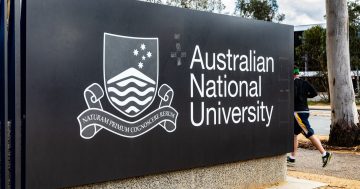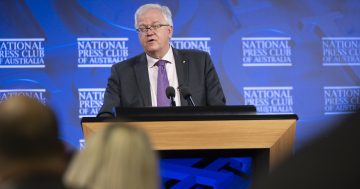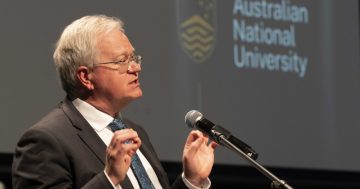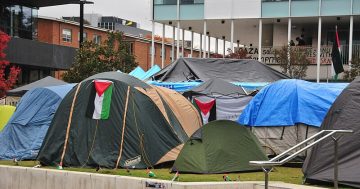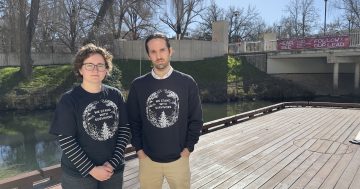
The ANU is working with the ACT and Federal governments to bring international students back. Photo: Michelle Kroll.
The Australian National University is working with the ACT Government to bring as many as 3000 international students back to Canberra. It’s willing to also offer quarantine facilities to returning international students and other returning Australians.
Health Minister Rachel Stephen-Smith yesterday (21 April) said the ACT would not take any more government-facilitated repatriation flights due to the significant costs and operational requirements associated with the program.
However, the ANU is pushing for its international students to return before the beginning of the second semester in July as part of a pilot program to return students to face-to-face learning on campus as soon as possible.
The ANU said in a statement today it had been working on a pilot program to return international students since August last year.
An ANU spokesperson confirmed the university had also offered to provide on-campus residential facilities to safely quarantine not only its returning international students but also other returning Australians.
“We would cover the students’ costs,” the spokesperson said.
It is estimated the ANU contributes around $1.04 billion each year to the ACT economy through having students as customers, employees and tenants.
The ANU, which is about to reveal its 2020 financial deficit to staff and students, is concerned that it is still no closer to returning international students despite classrooms returning to 100 per cent capacity from 26 July for semester two this year.
The spokesperson said the university has some of the world’s leading epidemiologists and infectious disease experts who have been advising the ANU, and the ACT and Federal governments on COVID-19 safety measures.
“Eighteen months into the pandemic that has stranded many of our students overseas, we are no closer to being able to bring them back to our campus,” the spokesperson said.
“The longer we remain out of reach for our students, the harder the path to recovery will be.
“We miss them. They miss us.
“Our students have done brilliantly to continue studying from afar, but many are just hanging on. The support some of our stranded students require at critical stages of their education cannot be provided indefinitely.”
ANU vice-chancellor Professor Brian Schmidt said there was no blueprint or easy answer to the situation, but the university needed to show its support to its international students as enrolment levels remained well below pre-pandemic levels.
Professor Schmidt said there were multiple ways of bringing students home safely, including having a COVID-safe campus alert system and guidance for specific circumstances such as students in residential accommodation.
“Our promise to our students is that we will keep working with the Federal and ACT governments to bring you back to Canberra and make our community whole as soon as possible,” Professor Schmidt said.












